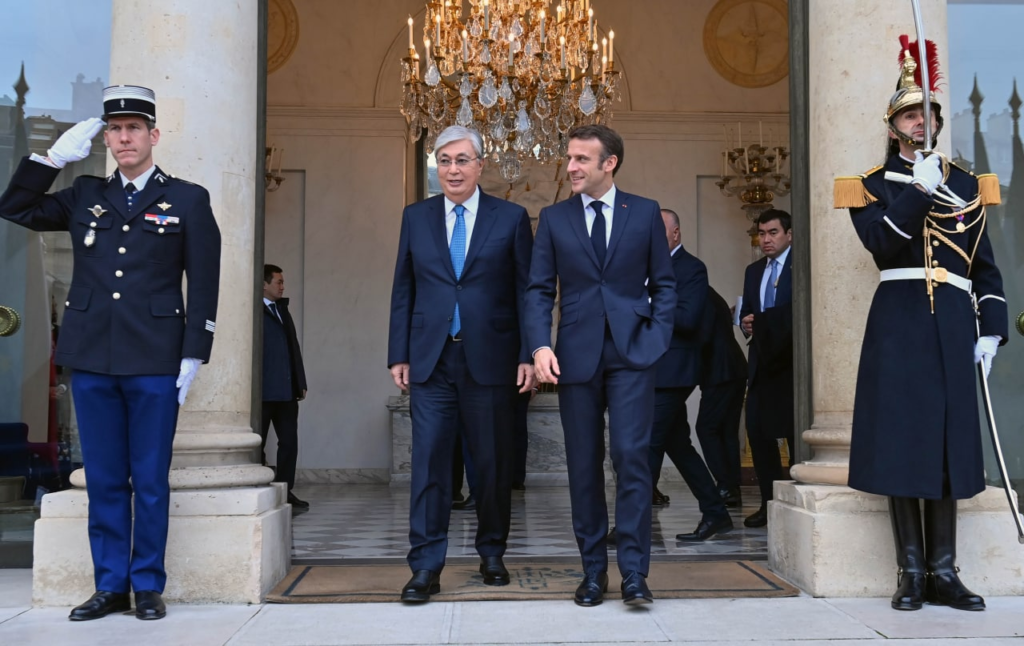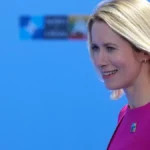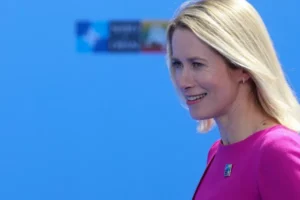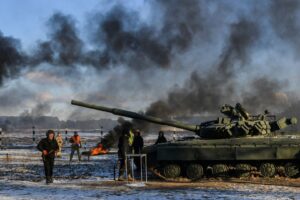PARIS. 29 November. European politicians have visited Kazakhstan more often. Less than a month ago, the President of the European Council Charles Michel arrived in the country, the other day the EU High Representative for Foreign Affairs and Security Policy, Vice–President of the European Commission Josep Borrel, arrived in Astana. A number of other high-ranking Europeans have held remote talks of various formats with the leadership of Kazakhstan during this time. What is the reason for such an unprecedented interest of Europeans in the Central Asian country and what does this mean for world politics?

Having received almost the entire political establishment of the European Union in Kazakhstan, with face-to-face high-level visits or remote meetings via video link, the President of Kazakhstan himself decided to fly to France. To consolidate the clearly marked progress of cooperation with the Old World.
Tokayev came to Paris during a difficult geopolitical situation. The G20 summit has just ended, where the leaders of the countries in the final communique almost unanimously condemned the war in Ukraine. But this circumstance is unlikely to affect Kazakh-French relations. President Tokayev has repeatedly criticized Russian foreign policy. What were his statements worth at the forum in St. Petersburg.
Astana has officially taken a “neutral” position in the conflict and flatly refused to recognize the “quasi-state territories” of Crimea, Donetsk, Lugansk, etc. In fact, this “neutrality” has another side: since the beginning of the war, Kazakhstan has increased diplomatic cooperation with Ukraine and has repeatedly sent humanitarian aid to this country.
President Tokayev informed about Kazakhstan’s position on the international agenda at the summit of the Organization of Turkic States in Samarkand. “… Kazakhstan strongly supports the territorial integrity of all states, and also considers it necessary to strictly observe the UN Charter. This is a necessary principle that fully corresponds to the basic interests of our country. Therefore, we will pay priority attention to this principle,” the Kazakh leader said.
Astana has already actually emerged from the dominant influence of Moscow and is quite successfully building a new system of relations with the world, its new “multi-vector”. In the context of France, this is confirmed by the decision taken in 2021 on annual consultations between the Ministries of Foreign Affairs.
Speaking about the political aspect of the meetings in Paris, it is not necessary to expect any difficulties. Since the beginning of his presidency, Tokayev has set a course for the real democratization of the country: reducing the political influence of the institution of the presidency and increasing the role of parliament in the life of the country. This fully fits into the paradigm of European political values, where France occupies traditionally strong positions.
The coincidence of political values only contributes to the strengthening of economic cooperation. The EU is the largest investor in the economy of Kazakhstan with a total investment of $ 160 billion. In turn, Kazakhstan is the EU’s leading trade partner in the region with a bilateral trade turnover worth $ 24 billion. Today, more than 170 French companies are represented in Kazakhstan, the most famous of which are: Total, Danon, Alstom, Orano. And in May 2021, the Roadmap of the Kazakh-French economic cooperation until 2030 was signed.
A separate article should be devoted to the scale of humanitarian cooperation. In this area, Kazakhstan has been cooperating with both the EU in general and France in particular for a long time and very closely.
In general, Tokayev came to France with a rather weighty baggage of cooperation, which will obviously be replenished with new agreements. They are waiting for him in Europe. European politicians are known for their pragmatism. They are well aware that a stable and strong Kazakhstan, located in the very center of Eurasia, is a key partner for them in this region. And the favorable geographical location gives them the opportunity to access the large markets of neighboring countries, affecting all spheres of life.
The war in Ukraine and its political and economic consequences have brought the European Union and Central Asia closer together. We are now witnessing not only the reshaping of the global energy market, but also the revision of old political ties, the building of new economic models. And judging by the context of what is happening between the EU and Central Asia, in particular Kazakhstan, it is these relations that are taking on a new dimension, the scale of which we cannot yet fully assess.
In any case, it is clear that under the current conditions, Kazakhstan and other Central Asian countries will not neglect the opportunity to consolidate a new trend in relations with European partners. This trend promises to benefit both sides.
At the same time, it is not worth expecting that Kazakhstan and the rest of the Central Asian company will radically turn to the west. The countries of the Eastern mentality are able to balance even in such difficult geopolitical conditions. Kazakhstan demonstrates this skill perfectly. Defending its independence, strengthening its handshakes with the West, Astana manages to maintain constructive relations with its neighbors.
The very multi-vector nature that until recently caused skepticism among experienced world politicians and sneers with accusations of naivety, it turned out, really exists. And maybe it will become the basis of a new world order, where only those who do not live by the principle of “all against all” can comfortably exist.
Source: Eureporter















